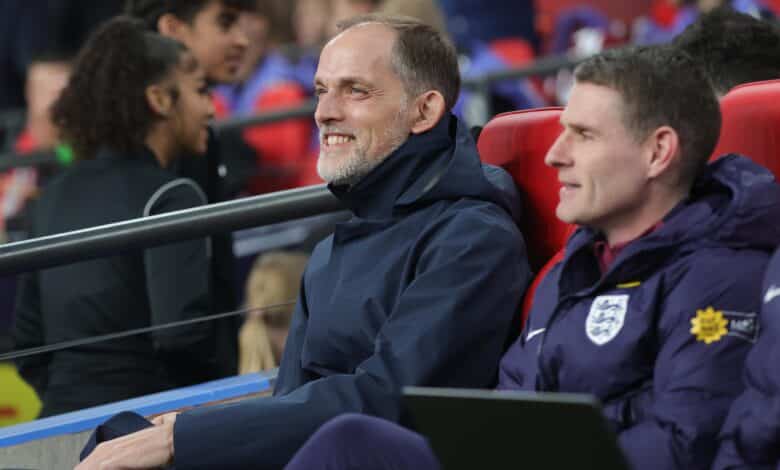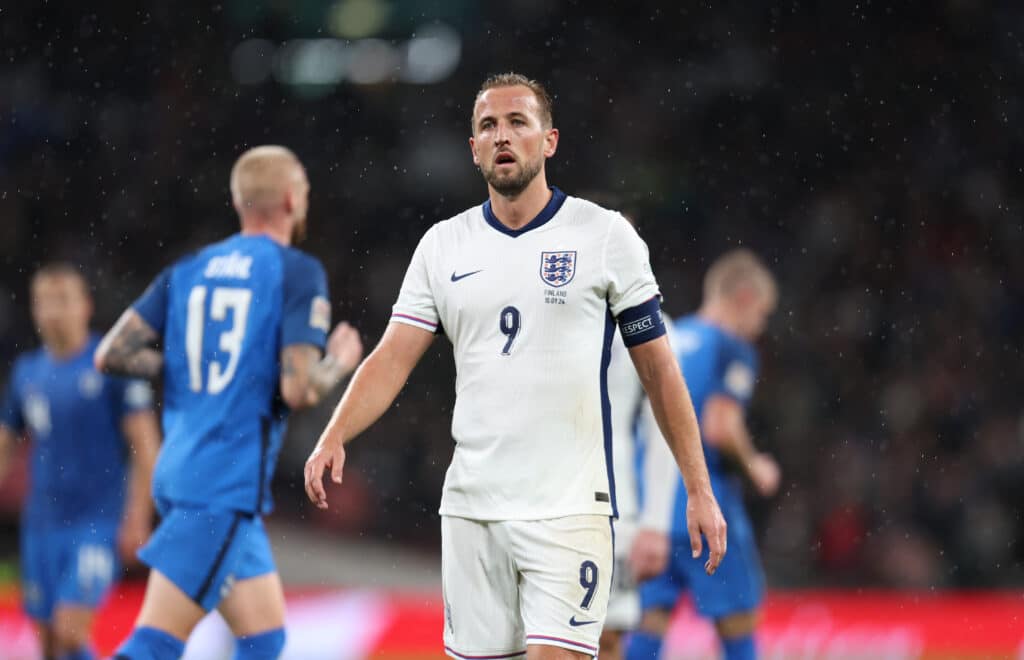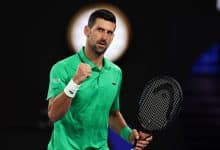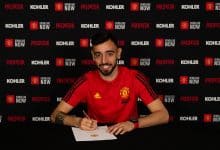
England Football Team has a New Leader: The Wembley floodlights hummed on a crisp March evening in 2025, casting their glow over a new era for English football. Thomas Tuchel, the German tactician with a Champions League pedigree and an intense penchant, stepped into the dugout as England’s head coach for the first time. His mission? To transform a talented but trophyless Three Lions squad into World Cup contenders by 2026. The stakes were clear: an 18-month contract, a nation’s expectations, and a ticking clock.
His first international break—two World Cup qualifiers against Albania and Latvia at Wembley—offered an early glimpse into what this era might hold. England secured routine victories, 2-0 and 3-0, but beneath the surface of these “professional” wins, as Tuchel called them, a subtle shift was brewing. This wasn’t a fireworks display of radical change; it was a meticulous laying of foundations, a quiet revolution shaped by pre-camp texts, tactical tweaks, and a squad that blended youth with grizzled experience.
Tuchel’s appointment in October 2024 had sparked debate—another foreign manager for a proud footballing nation?—but by March, the focus had shifted from his passport to his process. He’d spent the intervening months crisscrossing England and Europe, watching players, building rapport, and compiling a 55-man longlist. Now, with his first camp underway, the question lingered: could this serial winner, known for turning club chaos into silverware, crack the code of international football? Here’s how his debut unfolded, from the squad announcement to the final whistle against Latvia, and what it tells us about the road ahead.
England: A New Look
The Squad: A Balancing Act of Youth and Nostalgia
Tuchel’s first squad announcement on March 14, 2025, was a masterclass in pragmatism, combining bold calls with familiar faces. Marcus Rashford’s recall after a year in the wilderness—he’d last played for England in March 2024—raised eyebrows, especially given his midseason loan from Manchester United to Aston Villa. At 27, his pace and flashes of form earned him a lifeline. Jordan Henderson’s inclusion, at 34 and captaining Ajax, was the bigger shock. Absent since November 2023, his 83 caps and leadership trumped younger options like Adam Wharton and Conor Gallagher, signaling Tuchel’s focus on the here-and-now for 2026.
Youth broke through, too. Arsenal’s 18-year-old Myles Lewis-Skelly earned a debut call-up, his audacity against Erling Haaland earlier in the season catching Tuchel’s eye. Newcastle’s Dan Burn, 32 and uncapped at any level, added versatility and grit. Morgan Rogers, the 22-year-old Villa starlet, retained his spot from Lee Carsley’s interim tenure. Missing were stalwarts like Jack Grealish, whose lack of rhythm at Manchester City cost him, and Ollie Watkins, sidelined by a minor knee issue. The squad’s average age tilted older, reflecting Tuchel’s intent to lean on experience while fast-tracking select talents.
Thomas Tuchel hailed England's young debutant after an excellent performance vs Albania pic.twitter.com/LdXYIfi7e2
— 365Scores (@365Scores) March 22, 2025
The FA’s Mark Bullingham praised Tuchel’s cultural awareness, noting his outreach to over 50 players via FaceTime and texts since January. That edge showed in the omissions—Gibbs-White’s breakout Forest season wasn’t enough, nor was Wharton’s passing range at Palace. Tuchel wanted winners, not projects, at least for now. Critics wondered: was this a squad for 2026 or a stopgap? The answer would emerge on the pitch.
Tactics: A Premier League Pulse in International Veins
Tuchel’s tactical imprint was subtle but unmistakable. Against Albania, England lined up in a 4-2-3-1, a shape familiar from his Chelsea days, but with a twist: a high-pressing, Premier League-inspired intensity he’d promised in his unveiling. “I want more touches in their box, more recoveries in their half,” he’d said, and the stats bore it out—74% possession, 437 first-half passes (an Opta record for England), and six shots on target to Albania’s zero. Lewis-Skelly scored on debut, a poacher’s finish from a corner, before Harry Kane’s 70th England goal sealed a 2-0 win.
England's 437 passes in the first half vs Albania last night are THE MOST they've recorded since Opta started to document these stats ? pic.twitter.com/TQcwKMVEzE
— 365Scores (@365Scores) March 22, 2025
Latvia saw a tweak—a 4-4-2 high block shifting to a 2-3-2-3 in possession, with Declan Rice and Henderson anchoring midfield while Jude Bellingham and Rashford roamed. The result? A 3-0 victory, with Reece James, Kane and Eze on the scoresheet. England’s 27 shots to Latvia’s three underscored dominance.
The Camp: Texts, Talks, and a Touch of Mystery
Off the pitch, Tuchel’s meticulousness shone. He kept players guessing, delaying team announcements until after midweek Champions League games to assess form and fitness—a nod to his club coaching roots. Pre-camp, he texted players about performances, offering support during slumps, as one anonymous source told The Athletic. “He’s been in touch since January,” the source said. “It’s not just ‘well done’—it’s specific, personal.” During the camp, one-on-one meetings were a staple.

Tuchel’s staff—Anthony Barry, Henrique Hilário, Nicolas Mayer, James Melbourne—integrated seamlessly at St George’s Park, blending with holdovers from Southgate’s era. Training was intense but flexible, with Tuchel insisting on freedom to express within his system. “He’s not Southgate 2.0,” a camp insider remarked. “Gareth built unity; Thomas wants that plus an edge.” Players noticed—Jordan Pickford praised the “excitement” on TNT Sports, while Kane, scoring under his third England boss, seemed rejuvenated.
A winning combination! ? Thomas Tuchel's tactical brilliance and Harry Kane's goal-scoring prowess could be a match made in heaven for the England national team pic.twitter.com/FCsAGdcejQ
— 365Scores (@365Scores) October 18, 2024
The Verdict: A Foundation, Not a Firework
Tuchel’s first break ended with England atop their World Cup qualifying group—six points, five goals scored, one conceded. On paper, it’s a solid start, but the opposition was modest. Albania (FIFA rank 65) and Latvia (45) offered little resistance, akin to Southgate’s early romps against Malta or Lithuania. The real test—stronger sides, tournament pressure—looms in June and beyond. For now, Tuchel’s England feels like a work in progress: tactically promising, structurally sound, but lacking the flair fans crave outside tournaments.
Critics point to the conservatism—Henderson over Wharton, Walker’s creaky legs at 34—but Tuchel’s remit is clear: win in 2026, not nurture for 2030. Lewis-Skelly’s debut goal and Rogers’ spark offer hope that youth can coexist with experience. Kane’s enduring class—70 goals and counting—remains the linchpin. Yet, questions linger. Can Tuchel’s high-octane style thrive in international football’s truncated prep time? Will his man-management, tested at Bayern, hold under England’s microscope?

As the Wembley crowd dispersed after Latvia, Tuchel stood on the touchline, arms crossed, gazing at the pitch. “It’s a journey,” he said later. “This is just the first step.” For a nation starved of glory since ’66, that step feels cautious yet calculated—a foundation laid by a man who knows trophies don’t come cheap. The revolution isn’t here yet, but the architect is in place, and the blueprints are starting to take shape.
By Nicky Helfgott – NickyHelfgott1 on X (Twitter)
Keep up with all the latest football news and Premier League news on 365Scores!



